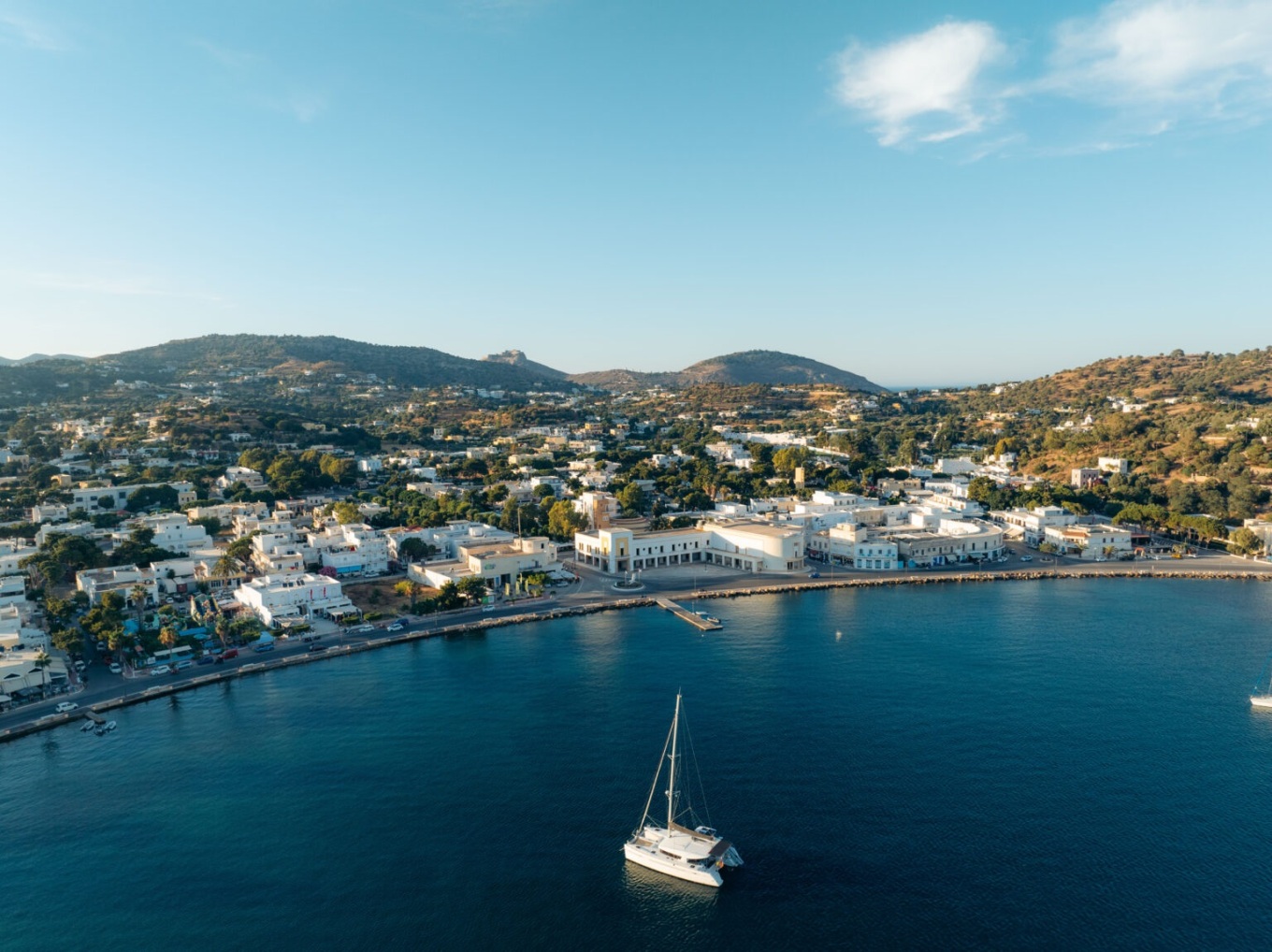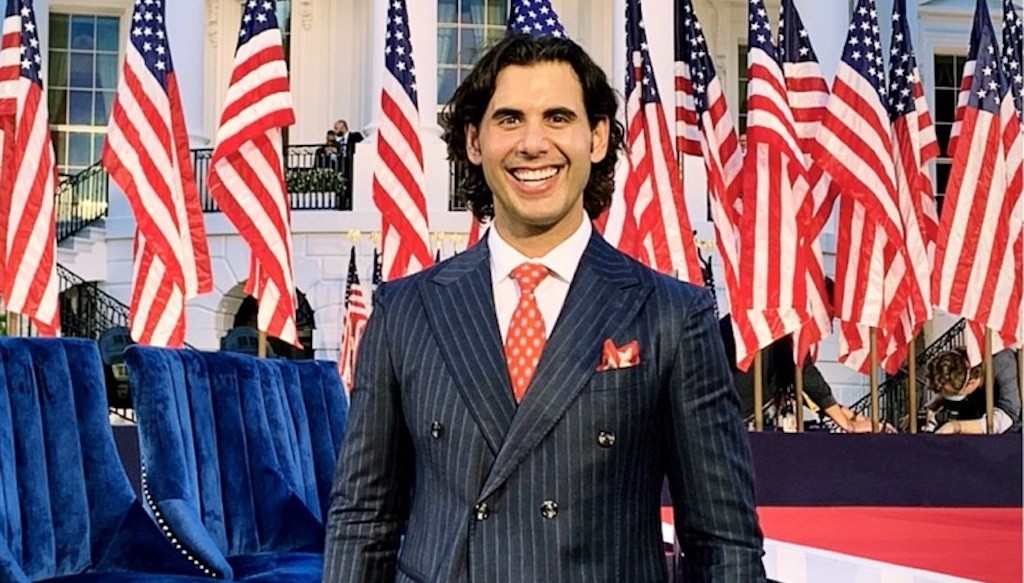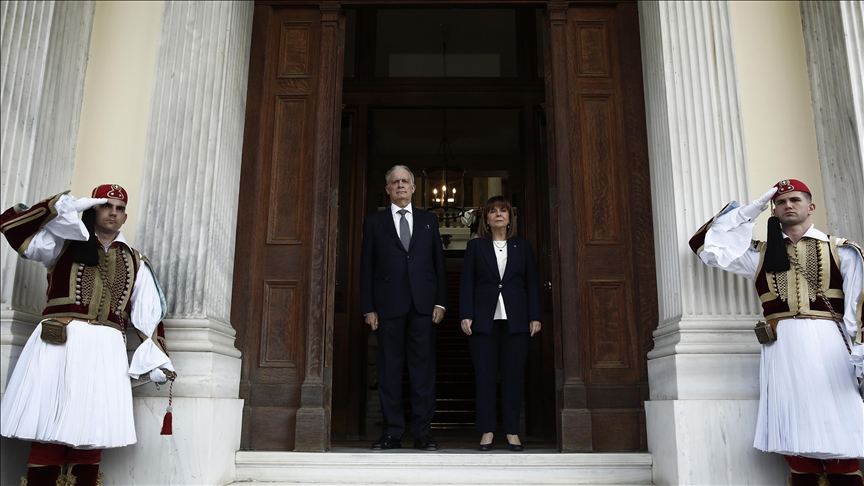

Properties priced between €5,000 and €20,000 are being massively sold to Turkish, Bulgarian, and other foreign hands in border and defense zones, as a legislative gap dating back to 2011 has whetted the appetite for the accumulation of Greek assets by foreigners. Muslims have appeared en masse to acquire housing in Northern Evros, while companies of Bulgarian and Turkish interests – along with EU passport holders, mostly of Turkish origin – are buying land and property in remote villages at minimal cost, while local leaders are sounding the alarm over an impending “silent settlement” in areas of vital interest that are gradually being emptied of Greek inhabitants.
The Involvement of the Intelligence Service (EYP)
Aggressive acquisitions are also being observed through the “backdoors” of the current legal framework, prompting the involvement of the national intelligence services. Legislative changes made under the PASOK government in 2011 allow for the sale of properties in border or military zones to legal entities, as long as their headquarters are checked – without verifying the nationality or origin of the individuals behind them.
In Xylagani, Rodopi, 14 homes were sold for €12,000–€15,000.
This allows companies based in EU countries to purchase properties in the eastern Aegean islands or near the land borders of Evros, even if they are owned by third-country nationals such as Turks.
In an attempt to fully map out the landscape of mass acquisitions of Greek land, eleven MPs from the ruling New Democracy party – Evripidis Stylianidis, Miltos Chrysomallis, Theodoros Karaoglou, Manos Konsolas, Yiannis Paschalidis, Giorgos Vlachos, Babis Athanasiou, Anastasios Δημοσχάκης, Giorgos Karasmanis, Maximos Harakopoulos, and Theofilos Leontaridis – jointly submitted a question and request for documents late last week, asking for the first official recording of the volume of these “aggressive property purchases,” explicitly citing surges in Thrace, Lesvos, Limnos, Chios, and the Dodecanese.
The situation has worsened in recent months, with 14 houses sold in Xylagani, Rodopi alone for €12,000–€15,000, while similar trends are noted in Imeros, Asomatoi, Proskynites, and Fanari – all villages originally settled by Asia Minor refugees.
The Buyers
Most buyers are said to be Muslims of Bulgarian or Turkish descent, even acquiring landmark infrastructure, such as two hotel units in the Maronia area. Acquisitions have also spread to Komotini, where interest, according to sources, is focused on standalone homes in the urban core.
Closure
As the eleven MPs noted, the current framework “facilitates individuals who hold EU citizenship despite third-country nationality (e.g., Turkish, Russian, Chinese), or legal entities with headquarters in Greece or the EU, allowing them to acquire properties or company shares in border and military areas without prior approval from any authority.” Meanwhile, a flood of foreign companies is appearing in the Evros region, even reaching Alexandroupoli, adding to their portfolios prime tourist and investment properties along the Thracian Sea coastline.
Beyond large-scale investors, a significant portion of aggressive real estate buyers in Thrace are Muslims with EU citizenship, mostly of Turkish descent, who had worked in Central and Northern Europe. Unwilling to return to Turkey due to its stifling political and religious climate, they choose Greek regions as alternatives. “They settle in Christian villages in Thrace for a more liberal lifestyle,” a well-informed source told “THEMA”, as Turkish and Bulgarian investors also expand their reach via foreclosure auctions, even in border prefecture capitals.

The scale of the phenomenon, which is beginning to take on demographic characteristics in Evros, recently prompted the mayor of Alexandroupoli, Yiannis Zampoukis, to sound the alarm from the institutional stage of the “East Macedonia Thrace Forum III,” warning of an imminent “silent settlement.” According to Zampoukis, this trend arises “through the purchase of abandoned homes in Evros villages for just €10,000–€15,000 by Bulgarian citizens who are now EU citizens, with an even more dangerous aspect being the purchase of these homes by companies with Turkish capital and interests.” “Don’t be surprised,” he added, “if in the next forums we’re talking about the right of these settlers to build mosques next to our crumbling churches in the name of religious freedom within the EU – new communities devoid of Greek character.” The recent EU election results have only heightened concerns among local officials.
For instance, in the recent European elections, the Party of Equality, Peace and Friendship (KIEF) received 678 votes in Evros, 409 of them in the municipality of Soufli, placing fifth – a development that well-informed sources say is not unrelated to the shifting demographics driven by real estate purchases. Simultaneously, a mass influx of Muslims is noted in Northern Evros, with the picture of desertion exacerbated by the region’s aging population and migration to Alexandroupoli. The “demographic shift” spoken of by locals is evident in schools: Soufli currently has five minority primary schools – more than the four public ones in the area.
A “Landing” on Leros
Beyond Evros, the trend has exploded in the Dodecanese, where foreign buying interest is also fueled by tourism. Leros tops the list of preferred destinations for foreign buyers and was the first island to be heavily settled by wealthy Turkish nationals. In addition to a circle of high-profile Turks with summer homes, the island has seen an influx of buyers from Northern and Central Europe, driving the price of land from €600 per stremma to €3,000 in the past seven years. “They are mostly French, Belgians, Dutch, Swiss, and Italians,” according to journalist Nikos Ignatidis, who also mentions Canadian property buyers on Leros. In Patmos, land now sells for up to €9,000 per stremma, with foreign firms recently eyeing hotel investments there.

Similar buying trends are being reported in Kos, Kalymnos, and Rhodes, where foreign companies are especially targeting hotel properties. Besides Turkish-origin buyers, the Dodecanese is also seeing interest from Chinese, Russian, and Libyan buyers via foreign firms and even funds, while the real estate landscape remains a labyrinth, with around 80,000 pending notarial acts yet to be registered in the Land Registry.
With a View to the Coast
Further north in the Aegean, similar patterns in Mytilene, Plomari, and Molyvos have prompted concern among local authorities, as anonymous companies have acquired properties with foreign managers and headquarters in Bulgaria or Cyprus. Most of the acquired properties in Mytilene are located on the side facing the Turkish coast, while a company with Greek headquarters is also active in the area. Notably, strong interest has been recorded in Plomari from Jewish Europeans who have chosen the village for summer homes.

However, that number grows exponentially when including renewals and tens of thousands of pending applications. As of February 2025, there were 1,471 initial permanent investor residence permits. But from February 2024 to February 2025, of the 14,924 applications submitted (initial and renewals), only 3,222 were approved, 31 were rejected, and one was revoked – while 11,670 remain pending. The surge in Turkish investment through the Golden Visa scheme is further fueled by backlogged applications from prior years (before 2020), which are now being processed. According to the most recent data from the Migration and Asylum Ministry, 7,456 permanent investor residence permits were issued between February 2024 and February 2025, based on decisions for applications dating as far back as 2018.
Turkish First Place
Specifically, in the regions of Eastern Macedonia–Thrace and the North and South Aegean, Turkey leads in requests for permanent investor permits. In 2024 alone, 44 permits were issued, 7 were renewed, and 62 remain pending for Turkish investors in Eastern Macedonia–Thrace. Similar figures are seen in the North and South Aegean, where 26 new permits were issued, 53 are pending, and 15 were renewed – highlighting, in absolute numbers, the extremely intense Turkish investment interest.
Σχετικά Νέα
 Christos Marafatsos: His Role in Strengthening Greek-American Relations
Christos Marafatsos: His Role in Strengthening Greek-American RelationsChristos Marafatsos, a Greek-American businessman, has significantly raised his profile within the Greek-American community.
 The utopia of a common European Security
The utopia of a common European SecurityThe new US administration has, as expected, brought upheavals on the international political scene.
 Christos Marafatsos in Greece: A Unique Address on U.S.-Greece Relations in Trump’s Second Presidency
Christos Marafatsos in Greece: A Unique Address on U.S.-Greece Relations in Trump’s Second PresidencyThe Israel-Greece Friendship Association is organizing an event featuring Christos Marafatsos, President of Greek.
 Veteran conservative lawmaker sworn in as Greece’s new president
Veteran conservative lawmaker sworn in as Greece’s new presidentVeteran conservative lawmaker Konstantinos Tasoulas was sworn in as Greece’s new president Thursday, as.

